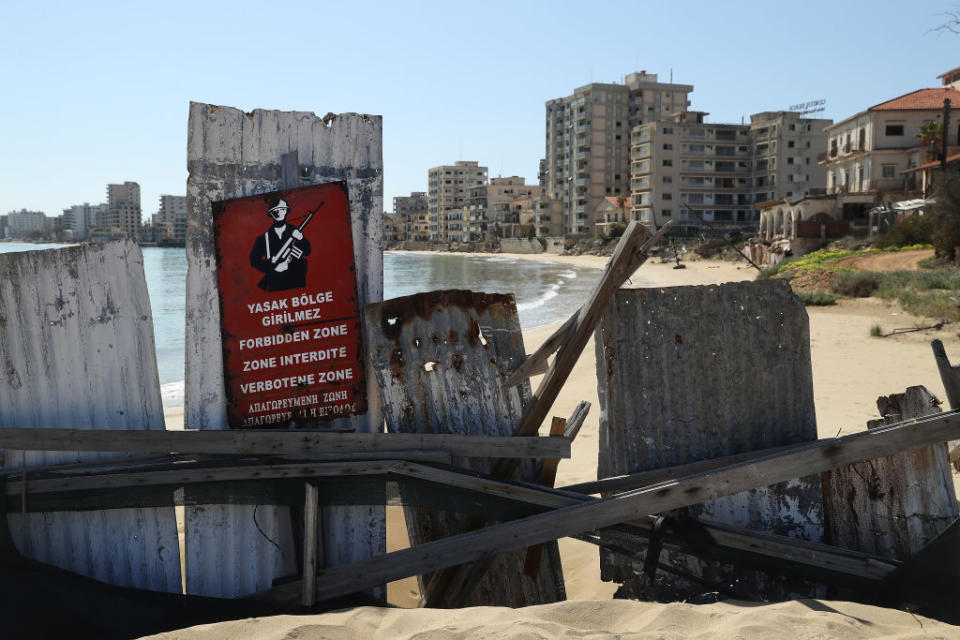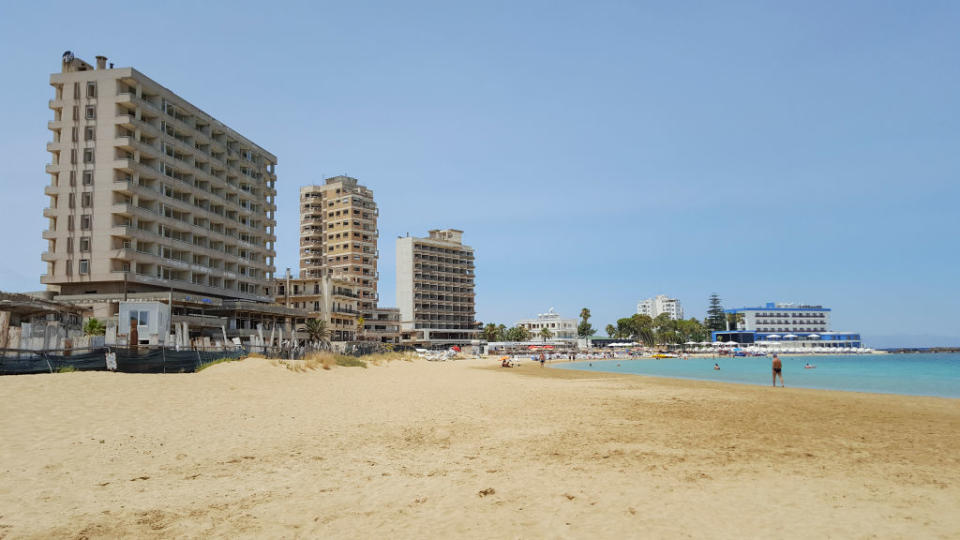'Very concerned': Fears as forbidden ghost town reopens to tourists
A once lively tourist resort has reopened after 46 years as an abandoned ghost town with entry forbidden to the public.
But there are fears the move to revive the beachside suburb of Famagusta city in breakaway Northern Cyprus could cause tensions to rise.
Once an affluent neighbourhood of high rise hotels, residences and shops, Varosha's 39,000 Greek Cypriot residents were forced to flee in the second wave of an invasion mounted by Turkey in 1974, triggered by a brief Greek-inspired coup.
It was sealed off by the Turkish military, and effectively left to rot, with streets overgrown with vegetation and decrepit buildings.

On October 8 however the Turkish Republic of Northern Cyprus reopened part of the beachfront resort, a bold move supported by Turkey’s capital Ankara but condemned by Greek Cypriots and causing concern internationally.
The move could hurt efforts to revive settlement talks on the island and stoke Turkey's row with EU members Cyprus and Greece over east Mediterranean maritime rights, which cooled after Ankara and Athens agreed to resume talks.
Successive United Nations Security Council resolutions have called for the transfer of the area to the administration of the United Nations.

Sources in Cyprus said the plan was to open up about 1.5km of beachfront to the public and not some six- square-kilometres inland.
Varosha was one of the territories slated to be turned over to Greek Cypriot control under a United Nations reunification blueprint put to a referendum in 2004. The plan failed as it was accepted by Turkish Cypriots but rejected by Greek Cypriots.
While Varosha has been considered disputed territory between the Turkish-Cypriot north and Greek-Cypriot south, the Turkish Defence Ministry made the announcement it would reopen regardless.

“Part of Varosha, which belongs to the Turkish Republic of Northern Cyprus (TRNC) and has been closed to settlement and visits for 46 years, is now open to the public,” it tweeted on October 8.
“This step, which has a great symbolic meaning and ends 46 years of longing, will be beneficial to the TRNC and our brothers living there.”
The Republic of Cyprus government vowed to protest over the “provocative and illegal action” and claimed it violated international law and UN Security Council resolutions.
"[We] condemn in the strongest terms the decision of the occupier, Turkey, and one of its henchman in the occupied areas, Ersin Tatar, to extend the licence for entry to the coastal front of Varosha, during a pre-election fiesta they held in Ankara, in the eve of the electoral process for the emergence of a new Turkish Cypriot leader,” the government said in a statement, according to CNN.

Cyprus government spokesman Kyriakos Kousios described the move to reopen the resort – a favoured haunt of celebrities including Elizabeth Taylor and Richard Burton in the 1970s – as "a pre-election stunt created in Ankara, on the eve of an election for a new Turkish Cypriot leader".
EU foreign policy chief Josep Borrell said the bloc was "very concerned" about the announcement and stressed the "urgency of restoring confidence and not of creating greater divisions”.
with Reuters and AFP
Do you have a story tip? Email: newsroomau@yahoonews.com.
You can also follow us on Facebook, Instagram and Twitter and download the Yahoo News app from the App Store or Google Play.

 Yahoo Lifestyle
Yahoo Lifestyle 
